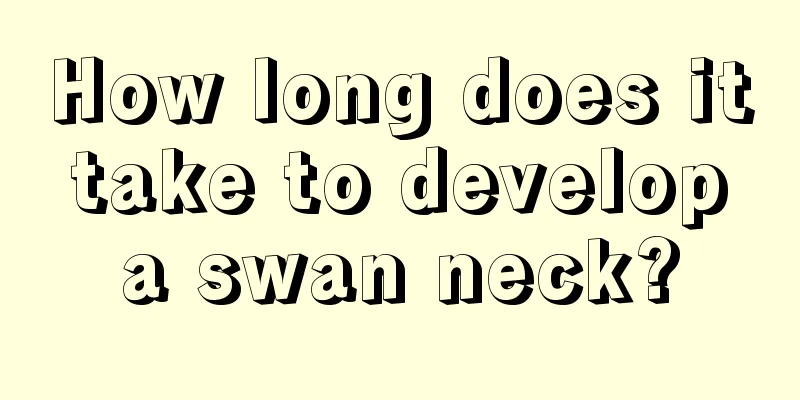How to treat shoulder adhesion

|
The treatment of shoulder adhesion includes surgical treatment and non-surgical treatment. Non-surgical treatment includes physical therapy, hot compress or massage to help reduce inflammation and relieve pain, while surgical treatment is for patients who have not responded to long-term non-surgical treatment. 1. Non-surgical treatment Frozen shoulder is a chronic disease. Most patients will gradually improve and recover. Patients should be made to understand the course and outcome of the disease and build confidence in overcoming the disease. In the early stages of the disease, the upper limbs should be suspended and immobilized, the shoulder joint should be gently moved several times a day, and salicylic acid preparations or other anti-inflammatory and analgesic drugs should be taken orally. If the tenderness is localized, 5-10 ml of 1% procaine plus 25 mg of hydrocortisone acetate can be used for local blockade once a week for 2 or 3 times in total. Physical therapy or hot compress can help relieve spasms, reduce inflammation and relieve pain. Appropriate massage can not only relieve pain but also help increase the range of motion. Within the tolerable range of pain, actively and systematically perform shoulder joint active functional exercises. As the range of motion increases, the pain will gradually decrease. Avoid hugging your shoulders when lying on your side. If the shoulder joint function does not improve after the above treatment, manual release can be performed under general anesthesia. The method is to press the shoulder with one hand and hold the upper arm with the other hand. First, rotate the humeral head inward and outward, and then slowly abduct the shoulder joint. During the whole process, you can feel the sound of the shoulder joint adhesion tearing apart. The technique should be applied from light to heavy, repeatedly, until the shoulder joint reaches the normal range of motion. The technique should be gentle during the operation to prevent violent activities from causing shoulder fracture or dislocation. 2. Surgical treatment For patients with frozen shoulder who have not responded to long-term non-surgical treatment, surgical treatment should be considered. There are two main surgical methods. (1) Biceps long head tendon fixation or transposition: For patients with frozen shoulder whose symptoms have not improved after long-term, planned conservative treatment, and whose clinical examination shows that the lesions are mainly located in the long head of the biceps tendon, long head of the biceps tendon fixation or transposition can be performed. If there is no obvious degeneration of the long head tendon of the biceps brachii, it can be cut off from its attachment to the supraglenoid tubercle, pulled out of the joint, and fixed to the coracoid process. If the tendon has undergone severe degeneration, it will be fixed in the intertubercular groove of the humerus and anterior acromioplasty will be performed at the same time. (2) Coracohumeral ligament transection: Normal upper arm abduction movement must be accompanied by external rotation of the humeral head so that the greater tuberosity of the humerus and the coracoacromial dome are in sync. In patients with severe frozen shoulder, because the upper arm is in the internal rotation position for a long time, the coracohumeral ligament contracts and limits the external rotation of the humeral head, affecting its abduction function. If long-term conservative treatment is ineffective, coracohumeral ligament transection can be performed, which is expected to improve the external rotation and abduction function of the upper arm. 3. Prevention When doing hanging exercises, you not only hold the horizontal bar with both hands and let your body hang down to fight against gravity, but also coordinate the whole body movement. For example: while hanging, the lower limbs are naturally relaxed, while the abdominal muscles and the back muscles are tense and contracted to a certain extent to keep the body in a coordinated state. The seemingly simple hanging exercise is actually an activity of the whole body, that is, all the necessary large muscle groups of the whole body are properly involved, making it an exercise that promotes body coordination and enhances reaction ability. How to do hanging exercises: First, choose a venue with a dirt or grass ground to prevent falls; first move your body, which is often called warm-up, to fully stretch the large muscle groups and large joints of the whole body, especially the shoulders, elbows, wrists, fingers and other large and small joints of the upper limbs, to adapt to the exercises of grasping the horizontal bar and hanging limbs to be carried out below. |
<<: Do you need to wash your hair before dyeing it? It actually causes such a big harm
>>: How many days after dyeing can you wash your hair? You must pay attention to these matters
Recommend
How to take good care of women with ovarian tumors
Ovarian tumor is one of the three major malignant...
Symptoms of subacute granulomatous thyroiditis
Subacute granulomatous thyroiditis often occurs i...
Is nasopharyngeal cancer likely to be inherited?
The chance of inheriting nasopharyngeal cancer is...
Melanoma patients should pay more attention to early symptoms
Everyone has moles of varying sizes, and most of ...
Benefits of long-grain fragrant rice
Rice is a staple food that people cannot live wit...
How long can a patient with nasopharyngeal carcinoma survive after radiotherapy and chemotherapy
How long can patients with nasopharyngeal carcino...
The effects and functions of clove cinnamon
Cloves and cinnamon are two common foods in peopl...
Prostate cancer patients should always pay attention to its typical symptoms
At present, more and more people in my country su...
Why is his face so pale and bloodless?
A pale and bloodless face looks very scary. If th...
What are the effects of fresh walnut skin?
In fact, fresh walnut skins are still relatively ...
The difference between thick lips and sausage lips
The difference between thick lips and sausage lip...
Can't people with thyroid cancer eat red meat?
Patients with thyroid cancer can generally eat re...
Does removing one ovary have any impact?
Ovarian cysts are a common disease in life, and f...
Reasons for high C-reactive protein
We all want to maintain good health, because keep...
How to diagnose laryngeal cancer early
Methods for early diagnosis of laryngeal cancer i...









